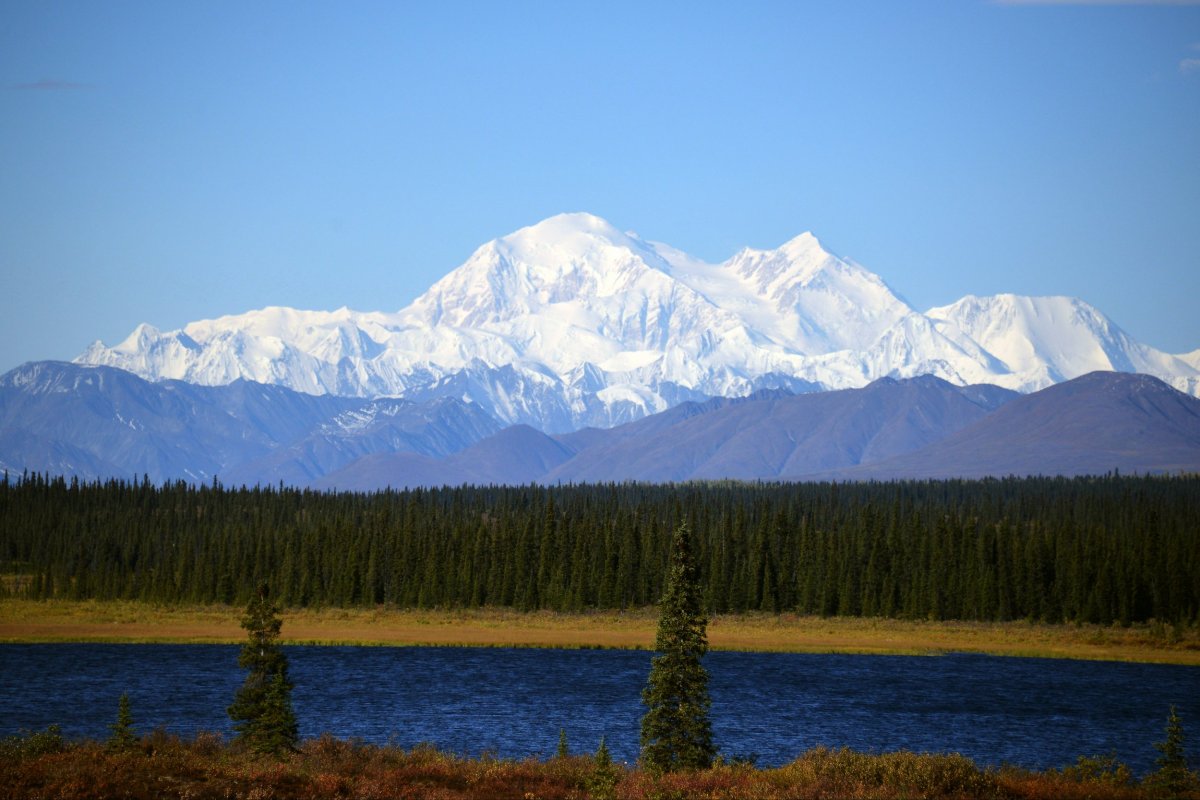Glaciers in an Alaskan National Park are melting faster than any time in the past 400 years—and summer temperatures are starting to climb, research published March 23 revealed. The American Geophysical Union released the information Tuesday.
Scientists who tested the temperatures of ice cores from the summit of Mount Hunter at Denali National Park revealed that summers are between 2.2 to 3.6 degrees Fahrenheit warmer than they were during the 18th, 19th and early 20th centuries.
Due to the warmer climate, 60 times more snow is melting on Mount Hunter than it did during the summers 150 years ago. Since then, much of the world has become industrialized causing more greenhouse gasses to be released into the atmosphere. Over the last century, the set of mountains in southern Alaska, known as the Alaska Range, has been quickly heating up, the research showed.

Now, more snow melts at the site than in any time in the past four centuries, according to the study published in the Journal of Geophysical Research: Atmospheres.
Building on previous research which shows that the tropical Pacific Ocean has heated up over the past 100 years, the authors were able to link this to the rapidly melting glaciers of Mount Hunter.
And as temperatures continue to creep up in the Arctic, the researchers fear that the mountain glaciers may overtake the melting of their sea level counterparts. The stability of mountain glaciers in general is important because they are a source of fresh-water for densely populated areas of around the world. Melting glaciers also contributes to rising sea levels, which can devastate coastal habitats.
Dominic Winski, a glaciologist at Dartmouth College and lead author of the study said in a statement on the American Geophysical Union (AGU) website: "The natural climate system has changed since the onset of the anthropogenic era," he said, referring to the era marked by the human impact on the environment.
"In the North Pacific, this means temperature and precipitation patterns are different today than they were during the preindustrial period," he added.
In June 2013, Winski and 11 other researchers from Dartmouth College, the University of Maine and the University of New Hampshire drilled cylinders known as ice cores into Mount Hunter's summit plateau, 13,000 feet above sea level. By examining the ice cores, the team were given an insight into the mountain's climate dating back to the mid-17th century.
A strip of dark ice containing no bubbles suggested that snow on the glacier had melted in the summer and then frozen up again. More dark bands found in a year indicated a warmer summer. There were very few bands, or melt events, prior to the widespread industrialization of the 20th century, the authors noted.
"This adds to the growing body of research showing that changes in the tropical Pacific can manifest in changes across the globe," Luke Trusel, a glaciologist at Rowan University in Glassboro, New Jersey, who was not involved to the study, told AGU Monday. "It's adding to the growing picture that what we're seeing today is unusual."
Uncommon Knowledge
Newsweek is committed to challenging conventional wisdom and finding connections in the search for common ground.
Newsweek is committed to challenging conventional wisdom and finding connections in the search for common ground.
About the writer
Kashmira Gander is Deputy Science Editor at Newsweek. Her interests include health, gender, LGBTQIA+ issues, human rights, subcultures, music, and lifestyle. Her ... Read more
To read how Newsweek uses AI as a newsroom tool, Click here.






